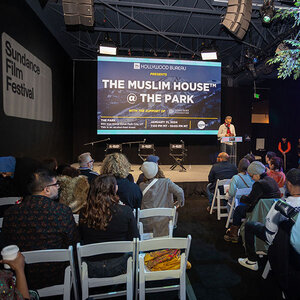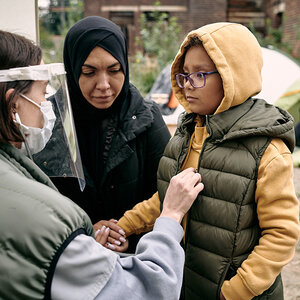Islam, Charity, and Activism: Middle-Class Networks and Social Welfare in Egypt, Jordan, and Yemen
In light of current events, it is increasingly important that policymakers and philanthropists understand Islam and dispel misconceptions about the religion. Particularly after September 11th and the American invasions of Afghanistan and Iraq, many have described a "clash of civilizations" or cultural divide between the Muslim world and America. In her 2004 book Islam, Charity, and Activism, Janine Clark, an associate professor of political science at Guelph University, makes an ambitious effort to humanize Islam, focusing on the religion's role in Egyptian, Yemeni, and Jordanian philanthropy. By focusing on philanthropy, a positive cultural institution shared by both Western and Middle Eastern societies, the book attempts to discredit some of the cultural divide philosophy.
Indeed, Clark does not consider Islamic philanthropy as a purely cultural phenomenon, but instead focuses on the role of class in the three Arab, and predominantly Muslim, countries where philanthropy and religion seem inextricably linked. This close relationship is not accidental, as all three counties have histories of Islamism, which Clark defines as incorporating Islamic ideals into all other aspects one's life, including charity. In practice, however, Clark observes that Islamist philanthropy is not entirely religious, and provides jobs, services, and social networks to the Muslim middle class.
Were it not for the U.S.-led invasions of Afghanistan and Iraq, Islam, Charity, and Activism would be almost entirely of academic interest. However, the USA PATRIOT ACT and similar policies have greatly restricted the activities of many Islamic charities. Such limitations, as well as growing civil unrest throughout the Arab world, should increase the book's relevance and popularity. Unfortunately, Clark does not explore these issues in much detail at all, and its analysis seems divorced from current events.
In her discussion of Muslim faith-based movements, Clark touches upon militant Islamist movements, like some factions of the Muslim Brotherhood and Hamas, but only briefly, as she is more interested in "moderate Islamism." While it is certainly important to note that most Islamic charities are indeed moderate, Clark's ignores some of the Muslim world's most important debates, including the Israel-Palestine and U.S.-Iraq conflicts. In effect, Clark's argument does little to challenge popular misconceptions of Islamist organizations.
Taking a personal, rather than political view, the author is more interested in her personal experiences with Islamic NGOs, and opens with an engaging testimony of her first experience with Islamist charities. She visits — first as a patient — the Mustafa Mahmoud clinic in Cairo, having received inadequate care at private hospitals. Impressed by the clinic's superior services, she studied Islamist NGOs and class more closely. Presumably the clinic was for the poor, yet it is located in a solidly middle-class neighborhood and the majority of its clients were middle- and upper-class, rather than lower-class, a trend Clark observes throughout the Arab world.
Since Egypt has a sizable new, educated yet un(der)employed bourgeoisie, Clark suggests that Islamist organizations provide jobs, services, and social networks to this group. She argues that this middle-class focus hurts the poor, and also the movement itself because the organizations have a stated interest in helping the poor, yet they help the middle class — indeed, they are betraying their values and losing their grassroots appeal.
Clearly, Clark's experiences in Egypt inspired her to re-evaluate the role of Islamic NGOs in the Arab world, and much of Islam, Charity, and Activism reflects her time in Egypt. Clark then looks at the role of class and religion in Yemen, where Islamist NGOs are cost-prohibitive to the lower classes and are one of the only socially acceptable socializing avenues for middle-class women, and Jordan, where Islamist NGOs are notoriously corrupt. However, the argument becomes forced as she tries to apply the Egyptian theories to these two countries, which are very different from each other, and from Egypt.
While her theories may not translate well to those practicing or even studying philanthropy in a Western context, anyone interested in international affairs, or Islamic philanthropy, particularly as academic subjects, would be interested in this book. A keyword search for Islam on the Foundation Center's Literature of the Nonprofit Sector generates 17 matches, which suggests that Islam, Charity, and Activism may fill a niche with its class-based analysis of an increasingly important topic.
For citations to additional materials on this topic refer to the Literature of the Nonprofit Sector Online, using the subject headings "Religion," "International philanthropy-Middle East," or "Nonprofit organizations-Arab countries."








